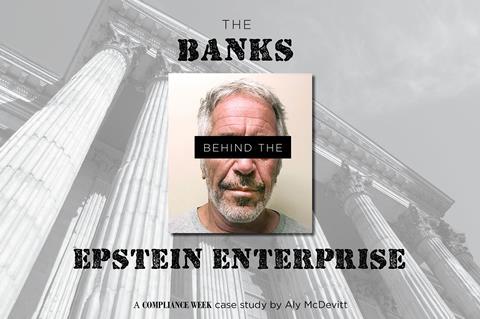In the “Wild West” of cryptocurrency, chief compliance officers have become a valuable commodity.
Crypto firms combating the enhanced regulatory scrutiny of the last year can lean on the legitimacy offered by an established and empowered CCO. Investigators are looking toward the compliance policies and procedures of these companies and ensuring their practices meet all relevant requirements. To do so could mean removing the target on one’s back.
But the reverse is equally true: A crypto firm with a CCO found to not be handling the responsibilities of their role seriously might face additional regulatory pressure. Such a situation is currently playing out at Binance, the world’s largest crypto exchange, following charges levied by the Commodity Futures Trading Commission (CFTC) last week.
The CFTC accused Cayman Islands-based Binance and its founder of operating an illegal digital asset derivatives exchange in serving U.S.-based customers from July 2019 through the present. Binance says it blocks all U.S.-based customers from accessing its platform; the CFTC disagrees.
Also included in the agency’s complaint were charges against Samuel Lim, Binance’s former CCO, of aiding and abetting the company’s alleged misconduct.
Lim “promot[ed] the use of ‘creative means’ to assist customers in circumventing Binance’s compliance controls,” according to a CFTC press release. He indirectly described the company putting commercial success over compliance with U.S. law as a “‘biz decision,’” the agency said.
The CFTC cited internal communications from Lim to back its claims, including the following examples:
- Regarding U.S. customers using virtual private networks (VPNs) to access the platform: “‘[T]hey can use vpn but we are not supposed to tell them that … it cannot come from us … but we can always inform our friends/third parties to post (not under the umbrella of Binance) hahah.’”
- Regarding known loopholes in know your customer (KYC) procedures: “‘If Binance forces mandatory KYC, then [competing digital asset exchanges] will be VERY VERY happy.’”
- Regarding customers alleged to use the platform for facilitating illegal activities: “‘Like come on. They are here for crime.’”
- Regarding whether a customer believed to be engaging in criminal activity should be offboarded: “‘He can come back with a new account. But this current one has to go, it’s tainted.’”
- Regarding the firm’s compliance culture: “‘Email sending and no action.’”
The CFTC further alleged Lim was aware of the applicability of U.S. regulatory and legal requirements on Binance as far back as 2018, saying it was a “‘pain in the [butt] but its [sic] my duty’” to remind the platform’s founder of sanctions controls and that there was “‘no … way in hell I am signing off as the cco’” for meeting requirements established by the Treasury Department’s Office of Foreign Assets Control (OFAC).
When your CCO describes doing their job as a “pain in the butt,” that’s a red flag. When they actively encourage breaking the law, that’s a black mark on the legitimacy of your entire operation.
Lim, believed to be based in Singapore, joined Binance in April 2018 as its first CCO, according to the CFTC, and remained in the role until January 2022. He was placed on leave in or around May 2022 but remains employed by the company, the agency added.
In recent months, Binance has announced multiple moves to shore up its compliance operations. It recruited Steven Christie, former head of compliance at competitor Kraken, to serve as senior vice president of compliance in September and named Noah Perlman, former Gemini chief operating officer, as global chief compliance officer in February. The company boasts it has 750 core and supporting compliance employees.
But all that is now undermined by the alleged actions of Lim as the company’s first CCO. His predecessors will face an uphill battle erasing the reputation the company puts forward a “mere façade of compliance,” as CFTC Commissioner Kristin Johnson described it.
How’s that for a pain in the butt.





















No comments yet